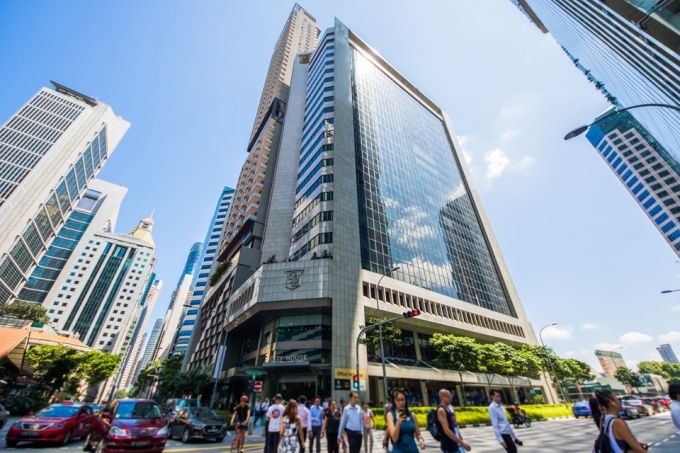WeWork set to grow Singapore footprint to over 300,000 sq ft

US-based co-working space provider WeWork, which launched its operations in Singapore only last December, is set to expand its presence.
The Business Times understands that it has signed up at several new locations - including City House and Mapletree Anson - and is in advanced discussions at others, such as 8 Cross Street and Suntec Tower 5.
If things go according to plan, WeWork's footprint in Singapore would grow to over 300,000 sq ft. When contacted, its spokesman said: "We do not have any announcements at this stage."
Co-working spaces are open-plan office spaces offered to users on a desk-by-desk basis. Facilities such as pantries and meeting rooms are shared. Such spaces are sold by membership on a daily or monthly basis, but some co-working operators are entering into longer-term arrangements with big corporations that may require space for special projects on short notice without having to run up huge capital expenses.
WeWork's space in City House in Robinson Road is said to take up four floors, totalling about 34,000 sq ft on the lower floors of the 23-storey building. This is part of the space now occupied by building owner City Developments Limited (CDL) for its headquarters.
CDL will move its headquarters to the group's flagship office building Republic Plaza in Raffles Place later this year, to take up some of the space vacated by tenants such as Japanese bank MUFG, Itochu and ING, which have moved to newer buildings.
CDL made improvements such as lift upgrades, at City House last year.
At Mapletree Anson, WeWork is leasing a floor of about 20,000 sq ft that Lendlease vacated last year to move to a co-working space in OUE Downtown Gallery in Shenton Way; this move is for the interim, until Lendlease moves to Paya Lebar Quarter. WeWork is close to wrapping a deal to lease the top two floors of Suntec Tower 5, more than 30,000 sq ft in all. The space, which takes up Level 17 and the mezzanine area on Level 18, used to be occupied by UBS. The bank will retain a presence in the same tower, in addition to its premises in One Raffles Quay and Hansapoint in Changi Business Park.
Talk in the market is that WeWork is also in advanced talks to take four floors totalling 60,000 sq ft at 8 Cross Street.
Last month, Frasers Commercial Trust announced that WeWork had committed to a lease of about 28,700 sq ft in one of China Square Central's heritage shophouse blocks. WeWork will take up the space in phases, starting with 16,800 sq ft in the second half of this year.
WeWork, which launched its operations at Beach Centre, opens its second location at 71 Robinson Road this quarter; it will also begin operations next year in Funan's North Office block, where it has leased 40,000 sq ft.
Co-working operators helped to support demand for Singapore office space last year; the trend is expected to continue this year, but market watchers expect a shakeup among the space-providers at some stage. They range from homegrown start-ups to regional players; a handful of international names like Regus and WeWork make up the rest of the field.
JLL's head of Singapore markets Andrew Tangye, commented that the growth in the co-working space sector has been evident in nearly all global cities in the past couple of years. "Interest in this space taps into the trend of more flexible styles of working, fostering greater collaboration and creativity.
"Demand is coming not just from start-ups, but large organisations looking to house some of their teams in alternative work spaces.
"While co-working space has been well received here and demand is expected to grow further, the operators that will be successful and continue to grow are the ones that are able to differentiate their offerings and show value to customers. Those who fail to do so may be able to compete only on cost."
Among the leases tracked by CBRE Research, more than 500,000 sq ft of space in Singapore was signed by co-working operators in 2017.
Michael Tay, the executive director for advisory and transaction in the property consulting group, said: "This sector is going through a phase of exponential growth, which naturally generates concerns about the ability of the Singapore market to absorb this influx of co-working space."
He estimates that about 97 per cent of office occupiers in Singapore are still committed to conventional leases of, say, three or five years.
"In the longer term, the success of this sector will hinge on the ability of co-working operators to succeed in converting occupiers on conventional leases to take up more co-working space."




